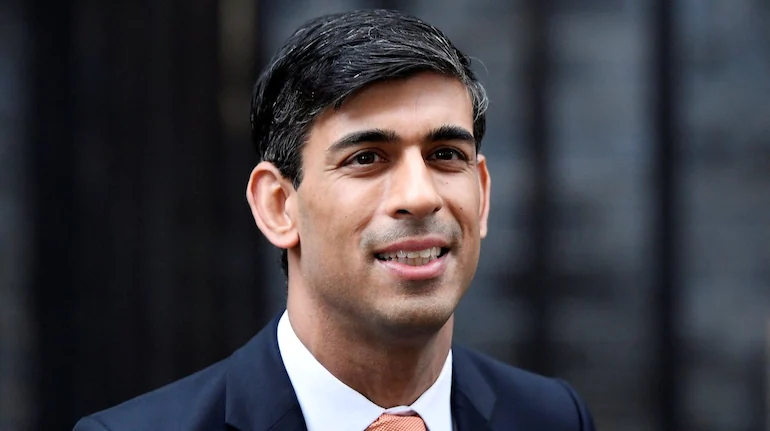The UK real estate market is in an interesting period right now. Many people are unsure whether it is appropriate to continue investing in real estate at this time due to the historically high-interest rates and rising cost of living. Currently, it appears like there are fresh questions for both investors and homebuyers every day. Now, the market needs to be calmed down and the economic confidence that everyone needs to see restored. To do this, the new Prime Minister, Rishi Sunak MP, and his staff must move rapidly. Meanwhile, the property experts including estate agents in Winchester have put together a property market analysis to help you decide better.
The current situation
When it was announced that Sunak would be the new prime minister, the markets responded favourably at first. Following a recent decline brought on by Liz Truss’ poor economic policies as Prime Minister, the pound sterling (GBP) marginally increased. We can interpret this as evidence that the markets are becoming more confident in Sunak, despite the fact that a strong Dollar marginally pulled it back down.
Similarly, after experiencing similar problems, the gilt markets recovered, and investors witnessed a corresponding increase in yields. This also contained five-year swap rates, which are of special interest to real estate investors, as observed by Oliver Shah, Associate Editor of the Sunday Times. This rate of interest, which had risen to more than 5% during the previous administration, is payable on various long-term financial transactions like real estate. It dropped significantly too little over 4.6% after Sunak’s victory was announced, which is positive news for the real estate market as a whole.
The rate at which the UK government can borrow, or gilt rates, has been significantly impacted by the recent unpredictability. This has an effect on how much it costs the rest of us to borrow money. It has an impact on homebuyer mortgage rates, homebuilder development loan costs, and investor refinancing costs.
What to expect?
Borrowing costs are expected to be decreased by anything that aids in restoring predictability and trust to the market. In turn, this will ease affordability pressure on households seeking mortgage financing, home builders breaking ground on new construction, and investors purchasing and managing rental properties. Investors should be aware of the fact that Sunak’s selection as prime minister has already had a positive impact on the housing market.
The majority of the nerves have been calmed by the confidence he instils in the market, and the impending Budget at the end of October presents Sunak and his new team with an opportunity to further re-establish stability in the markets. Even while it is impossible to forecast all that will be included in that Budget, it is reasonable to assume that housing will be a key area of interest. As the administration tries to get back to “business as usual,” we might see greater clarity regarding housing policy, such as rental reform, cladding, planning reforms, and more. The markets are sure to embrace this, and as confidence grows in the national economy, it would not be surprising to see borrowing prices drop once further.
Although this should be viewed in perspective, declining borrowing costs will stimulate demand and transaction volumes in the UK property market. Despite the fact that mortgage rates may decline from the time after last month’s mini-Budget, the 12-year stretch of record-low borrowing costs is finished. 18 months of double-digit house price increases will halt as demand declines.
The property forecast
The stop of double-digit house price increases initially appears to be a clear disadvantage for real estate investors. It is true that a lower house price rise will result in lower earnings, but is this the only effect? First off, there are concerns that continued house price growth at this level could eventually result in a much more severe fall, which all investors will undoubtedly want to avoid at all costs.
Second, investing in real estate is most profitable when done as a medium- to long-term strategy. If it results in a more sustainable industry that generates high returns for a longer period of time, a modest decline in annual growth is not necessarily a bad thing. Even before Sunak’s appointment as prime minister, market sentiment appeared to be as robust as ever. Yopa research conducted during the worst of the economic crisis in September and October of 2022 reveals that people’s confidence in homes is unwavering.
Effect on Investors
If the fundamentals of the UK real estate market, which state that demand is significantly higher than supply despite an unfavourable market environment, continue to hold true, there is only one apparent course of action. You can take advantage of a market that is still functioning very well and avoid the worst of the present economic conditions at the same time by investing in off-plan property in the UK that is still under construction. It’s the best of both worlds. The majority of the funds won’t need to be provided until the property is finished, regardless of whether you are paying in cash or with a mortgage.
This gives the mortgage market and interest rates time to improve for you, and as the building on your property progresses, it will also result in capital appreciation. You can purchase at a price that will ultimately be below market value by buying off-plan in a strong, developing market with future potentials like Manchester or Birmingham. This will maximise your rewards. By waiting out the current difficult economic situation and borrowing when rates are lower, you will minimise your costs.

